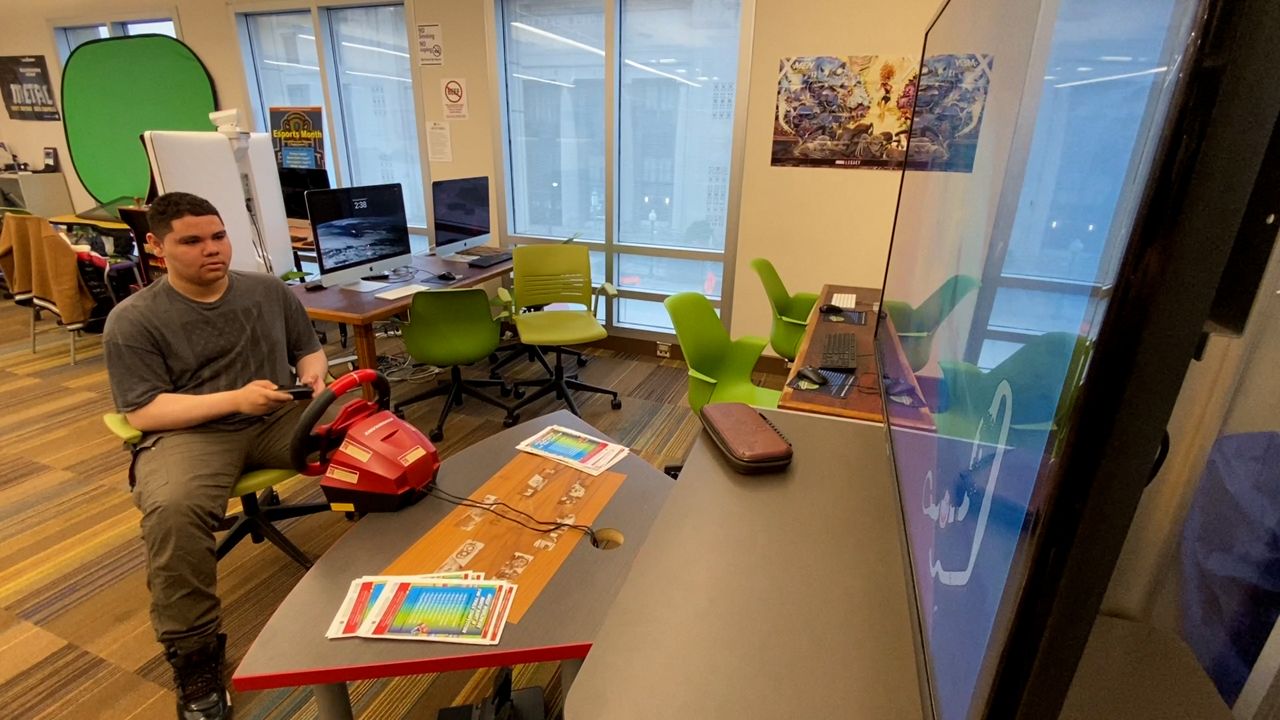According to the World Health Organization, an estimated 1 million people die from lead poisoning each year.
Higher lead levels can be found everywhere, from spices, to cosmetics, to walls in older houses.
Childhood lead poisoning is top of mind for many parents.
Pediatricians recommend having your infants tested for lead at ages 1 and 2, when kids are lower to the ground and more prone to put things into their mouths.
For children with special needs, they recommend testing even more frequently.
But sometimes testing still comes too late.
Jamie Peterson moved from Florida to New York with her two sons about a year ago. Without the chance to tour their new home beforehand, the three of them were excited to move in.
“A nice three-bedroom, nice, spacious home,” Peterson described.
The new place was a whole new world to explore for her two-year-old, Ryder.
“Everything that’s introduced to him, he likes to try, like toddlers do,” she explained.
Little did she know, his habit to chew wasn’t just teething.
“Once the child gets a taste of lead, it’s sweet like candy," she said. "And what would a child think? 'I like that. I want some more of that.' But it’s completely dangerous. It’s complete poison."
The windowsill in her youngest’s bedroom had lead paint. He’d been poisoned.
“I can’t help but feel a little bad that I didn’t know,” Peterson cried.
A common cold being passed along around the house led Peterson to take her toddler to the hospital. That’s when she learned the news that would change her life.
“From what I’m being told, 55 is a high number for lead. Ryder was 182,” Peterson explained, “Experiences that should be normal for a 2-year-old are not normal for my son. And this is disheartening. It’s a little hurting because my son was thriving before we moved into this place."
Dr. Sandra Jee is the director of the Western New York Lead Poisoning Resource Center. She’s been working with the Peterson family since she assumed the role at the end of 2023.
“Lead unfortunately is a toxin that gets in your whole-body system," Jee said. "So, it actually affects all different organs in the body, not just the brain, but also throughout the blood, all different organs. The most obvious and prevalent side effects are effects to the brain. So, some of them are very subtle. You might have some slowing of development and it’s hard to pinpoint and say it’s due to lead poisoning."
Dr. Jee has been working with the Petersons to get Ryder into early intervention and has even been helping with a potential autism diagnosis. She says it’s not uncommon to explore after children have been exposed to lead.
“I cannot say that there is one that causes the other," Jee said. "I would say in my clinical experience, sometimes they go hand in hand. It may have been that Ryder had some developmental difficulties that made him more likely to chew than another toddler. Then he just got that taste of the lead and then he started chewing it more and more. So we don’t know the cause for other things like autism spectrum disorders. We just know that our job as parents and as pediatricians is really to try to do as much as we can when children are young and their brains are developing and growing to try to maximize their development."
Peterson says her son was thriving before moving into their home. She fears the consequences of lead poisoning has changed her family’s life forever. She says her son had started talking before moving into their New York home. She feels as though her son was robbed of his potential at too early of an age. While she raises him with concerns about his health, she’s also been out of work to provide the extra care her son needs.
“My son's life has been changed forever," Peterson said. "If you know anything about lead, it affects the IQ of children. If you know anything about lead, what it’s done to the child is irreversible."
The Petersons have returned to the hospital multiple times. Her son has been prescribed a medication to help keep his lead levels balanced, but she says treatment is difficult because it’s provided in large pill form, and it smells of sulfur.
“Once you go in the hospital, you do the treatment, you think it’s done," Peterson said. "It’s not going to go away forever. Both of his doctors informed me that his number would never go down to a flat zero. But there are things you can do to just keep the number down to a minimum."
Jee says once a child is exposed, it’s been to continue to get them tested regularly; especially if the child has some sort of intellectual disability. She adds that it is in the child’s best interest to continue to nurture their minds while they continue to develop. Medication is a more direct way of balancing lead levels for dramatic cases, like the Peterson family. Peterson says that’s what she’ll continue to do.
“I understand it’s going to be difficult," she said. "And I’m ready for whatever comes with my son."










